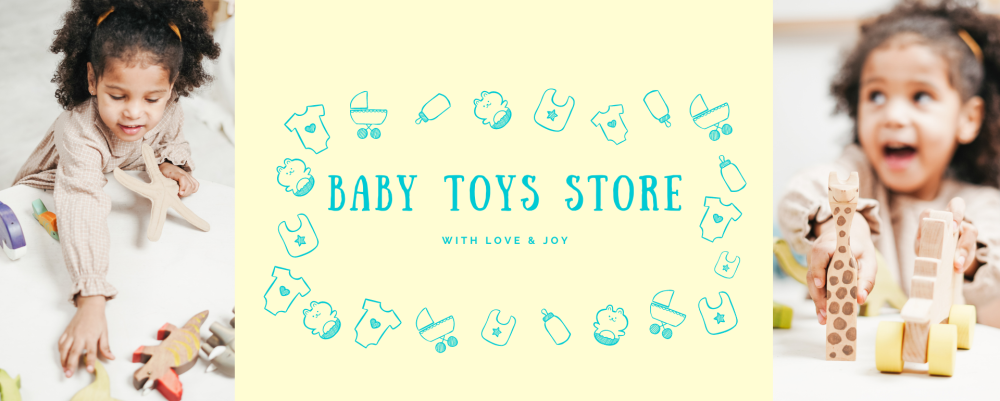Bringing a newborn home for the first time can be both exciting and overwhelming. As a first-time parent, you may have questions about how to properly care for your newborn and ensure their well-being. Here are some essential tips to help you navigate the early days of parenthood.
- Which Baby Foods Can Help Boost Immunity?
 Boosting your baby’s immunity is crucial for their health and well-being. Here are some baby foods that can help enhance their immune system: Breast Milk: If possible, breastfeeding is one of the best ways to support your baby’s immune system. It provides essential antibodies and nutrients. Fruits and Vegetables: Introduce […]
Boosting your baby’s immunity is crucial for their health and well-being. Here are some baby foods that can help enhance their immune system: Breast Milk: If possible, breastfeeding is one of the best ways to support your baby’s immune system. It provides essential antibodies and nutrients. Fruits and Vegetables: Introduce […] - What Baby Food Is High In Calcium?
 Many baby foods are designed to provide essential nutrients like calcium for healthy development. Here are some common baby foods that are high in calcium: Dairy Products: Dairy-based foods like yogurt and cheese are excellent sources of calcium for babies. Look for plain, unsweetened varieties with no added sugar. Fortified […]
Many baby foods are designed to provide essential nutrients like calcium for healthy development. Here are some common baby foods that are high in calcium: Dairy Products: Dairy-based foods like yogurt and cheese are excellent sources of calcium for babies. Look for plain, unsweetened varieties with no added sugar. Fortified […] - Can Baby Food Cause Constipation?
 Yes, certain types of baby food can potentially cause constipation in some infants. Constipation occurs when a baby has difficulty passing stool, and their bowel movements become less frequent or harder. Here are some factors related to baby food that can contribute to constipation: Introduction of Solid Foods: When babies […]
Yes, certain types of baby food can potentially cause constipation in some infants. Constipation occurs when a baby has difficulty passing stool, and their bowel movements become less frequent or harder. Here are some factors related to baby food that can contribute to constipation: Introduction of Solid Foods: When babies […] - Can Baby Food Be Microwaved?
 Yes, baby food can be microwaved, but it should be done with caution to ensure that the food is heated evenly and to prevent hot spots that could burn your baby’s mouth. Here are some tips for safely microwaving baby food: Use Microwave-Safe Containers: Always use microwave-safe containers and utensils […]
Yes, baby food can be microwaved, but it should be done with caution to ensure that the food is heated evenly and to prevent hot spots that could burn your baby’s mouth. Here are some tips for safely microwaving baby food: Use Microwave-Safe Containers: Always use microwave-safe containers and utensils […] - Are Baby Food Allowed On Planes?
 Yes, baby food is generally allowed on planes. Airlines typically have policies in place to accommodate parents travelling with infants and young children, which often includes allowing baby food and necessary baby-related items on board. Here are some important points to keep in mind when travelling with baby food on […]
Yes, baby food is generally allowed on planes. Airlines typically have policies in place to accommodate parents travelling with infants and young children, which often includes allowing baby food and necessary baby-related items on board. Here are some important points to keep in mind when travelling with baby food on […] - Why Baby Food Pouches Are Bad?
 Baby food pouches can be a convenient option for parents on the go, but there are some concerns and drawbacks associated with them. Here are some reasons why baby food pouches may have drawbacks: Limited Textural Variety: Baby food pouches typically contain pureed or mashed foods, which lack the texture […]
Baby food pouches can be a convenient option for parents on the go, but there are some concerns and drawbacks associated with them. Here are some reasons why baby food pouches may have drawbacks: Limited Textural Variety: Baby food pouches typically contain pureed or mashed foods, which lack the texture […]
- Create a Safe Environment: Make sure your home is safe for your newborn by childproofing the living spaces. Keep small objects out of reach, cover electrical outlets, and secure furniture to prevent accidents.
- Practice Proper Hand Hygiene: Wash your hands thoroughly before handling your baby to reduce the risk of infection. Encourage visitors to do the same.
- Establish a Feeding Routine: Whether you choose to breastfeed or bottle-feed, establish a feeding routine that aligns with your baby’s needs. Feed your newborn on demand, looking for signs of hunger such as rooting, sucking motions, or crying.
- Diapering and Hygiene: Change your baby’s diapers frequently to prevent diaper rash and discomfort. Clean the diaper area gently with water or fragrance-free wipes and apply a diaper rash cream if needed.
- Promote Healthy Sleep: Newborns sleep for several hours a day, but they also wake up frequently for feedings. Create a calm sleep environment by keeping the room dimly lit and using white noise to soothe your baby.
- Support Head and Neck: Ensure you support your baby’s head and neck whenever you pick them up or hold them. Their neck muscles are still developing, and they need extra support.
- Soothe and Comfort: Newborns often find comfort in being held, rocked, or swaddled. Experiment with different soothing techniques to find what works best for your baby.
- Monitor Baby’s Temperature: Keep your newborn at a comfortable temperature, neither too hot nor too cold. Dress them in layers and use lightweight blankets for warmth.
- Seek Support: Don’t hesitate to ask for help from healthcare professionals, family, or friends. Reach out to a pediatrician for guidance on your baby’s health, growth, and development.
- Take Care of Yourself: Remember to prioritize your own well-being. Rest when your baby sleeps, eat nourishing meals, and ask for support when needed. Taking care of yourself enables you to be the best parent you can be.
Remember, every baby is unique, and parenting is a learning process. Trust your instincts, enjoy the precious moments, and seek guidance as needed. You’re embarking on a wonderful journey of parenthood, and with time, you’ll gain confidence and adapt to your baby’s needs.








